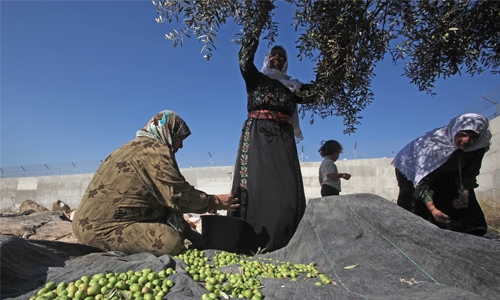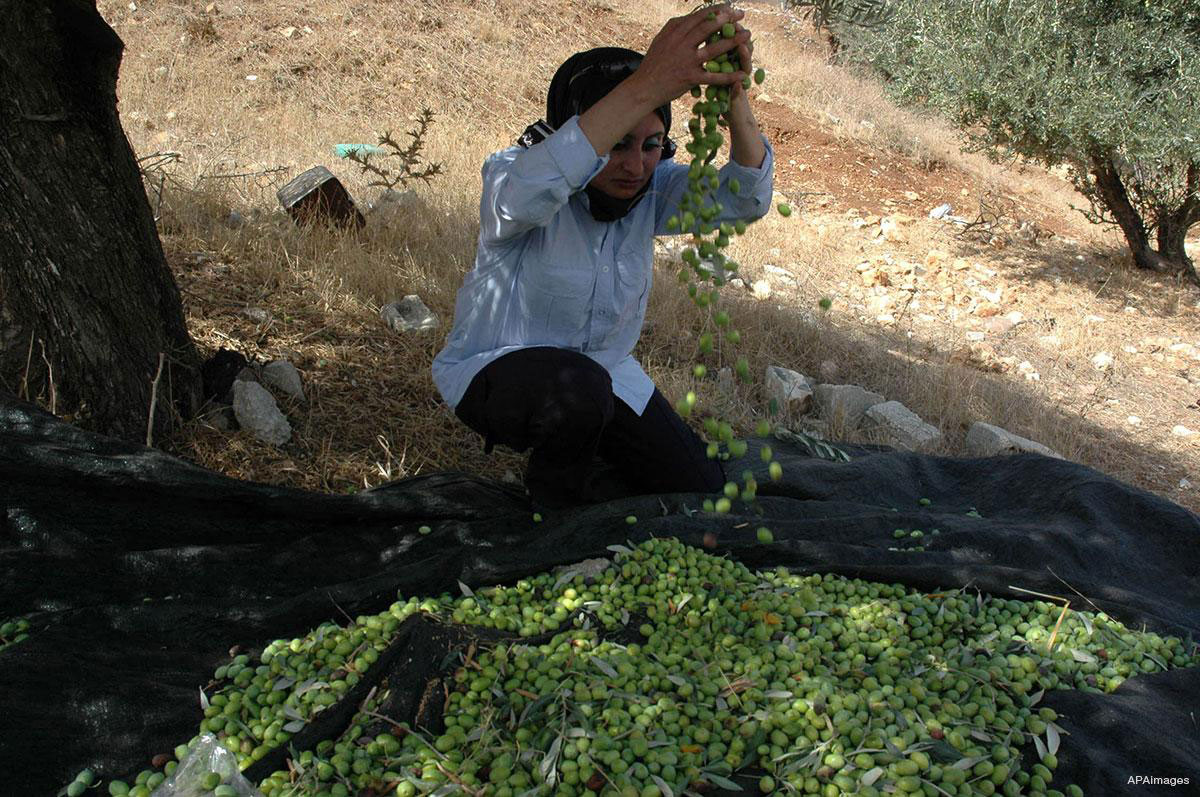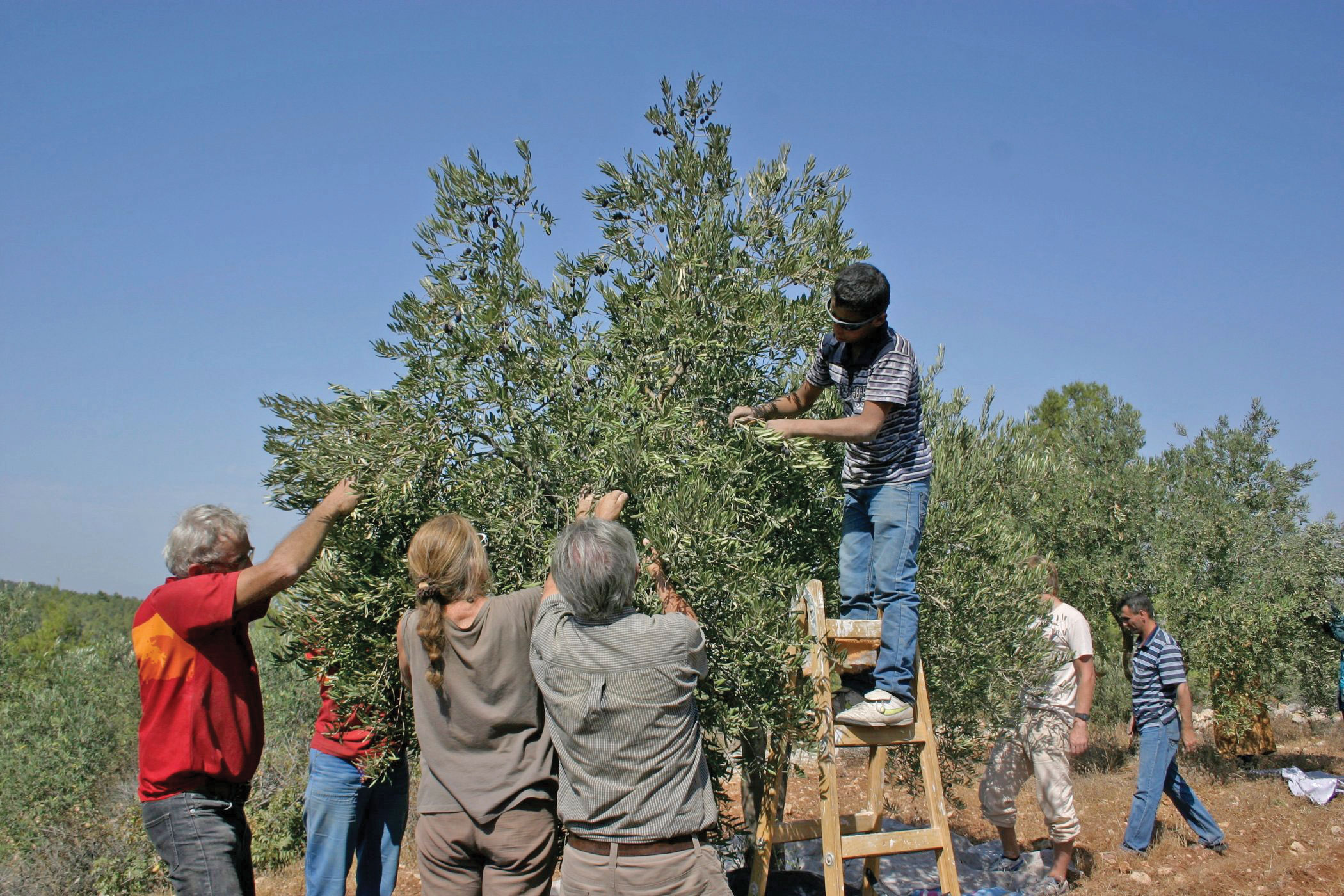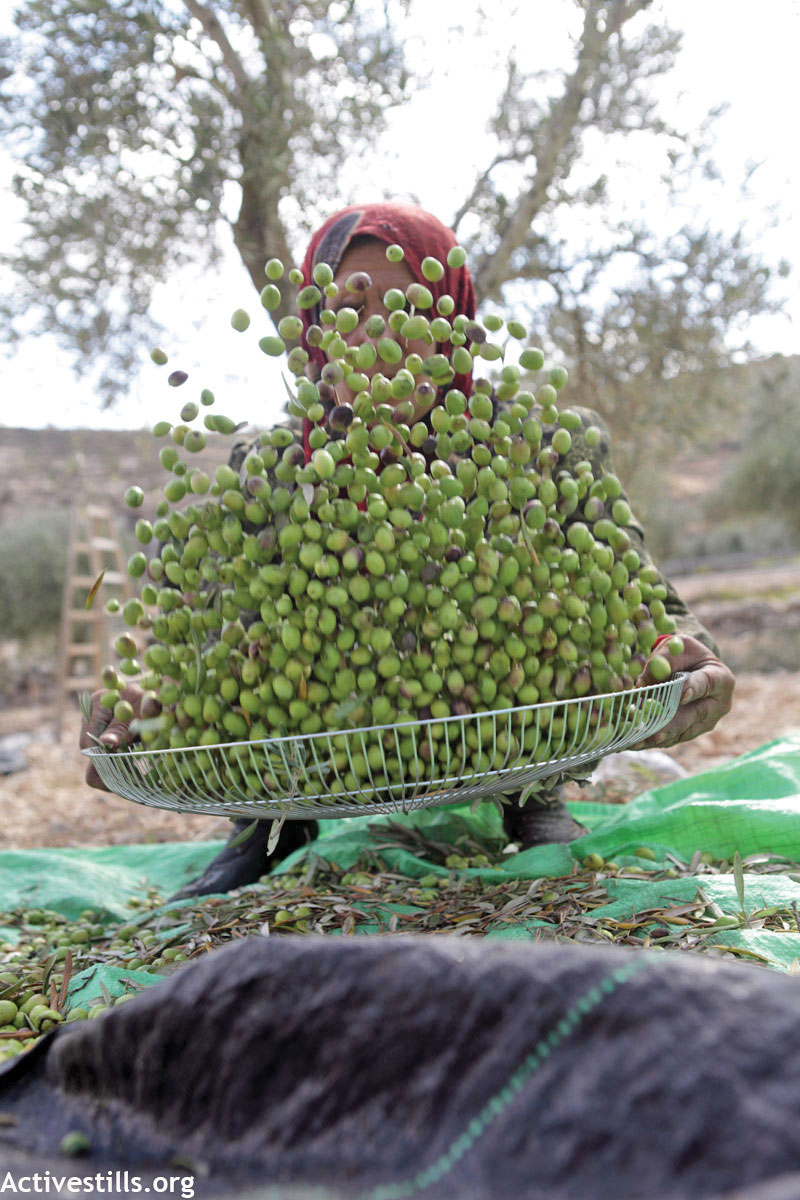Palestinians busy with olive harvest
Ramallah : In October every year, thousands of Palestinians engage in a process of olive harvest, not only to supply their families, but also to maintain the process as a way to fight the occupation and the land confiscation.
Olives and olive oil are non-escapable on every Palestinian family’s dining table, no matter rich or poor.
This time around, Palestinian families and farmers do their best to pick the product after a year-long process of caring for the land and trees, which are considered of both nationalistic and economic value.
Today, people are using more advanced techniques such as diesel-operated roller sticks to speed up the harvest.
Abu Naser, 55, from Arura village near Ramallah, spends most of his time working in the United States, but always returns to Palestine for the olive harvest season.
“This tree has worked with us in resisting the occupation It was anchored for the resistance of the occupation,” he said.
“The first reason, as everybody knows, is that settlements are built on parts of the lands that are unused, so practically, we take care of this tree to protect the lands from the settlements, from the occupation and land confiscation,” added Abu Naser.
Taking care of the olive tree farms all year long is a hard and expensive process, and selling the product is one of the ways to get economic return, especially with maintaining the quality for export.
To Abu Naser, what is more important is to seek the quality and protect the national product, which makes Palestinians better known across the world. He said “even if it doesn’t make any profit, it is a victory for us.”
The season usually starts after the first autumn rain fall, and, depending on the location and maturity of the olives, the starting of the season varies over a period of nearly one month.
He added that “this tree brings the family unit closer together and bonded, especially as they work collectively in addition to (the tree) being a source of income. Although lately it was not feasible or enough as income, we are now struggling to keep this tree sufficient, especially to those with limited income.”
In order to overcome the economic difficulties, an association for farmers was established in 2005 with the aim to enhance the quality of the olive and oil produce.
“We visited the olive oil press, where modern technology comes to serve the purpose of decades-long tradition and prepare it for consumers, and there we met a member of the association,” said Ribhi Baker, who works in an agricultural union in the West Bank.
Baker explained the process as the farmers were bringing in their olives into the first station to be cleansed through and pressed to oil.
According to Baker, “farmers pick their olive trees once they are matured, usually in October, depending on the geographical location and the height of the area, then they start bringing the olives to be pressed to oil and stored.”
He explained that the association takes care of the process collectively to provide farmers with an added value and reduce cost.
The surplus made by each family is sold back into the local market, or even exported through such an association.
The tradition and the produce are both considered a national symbol, and the industry is a qualitative addition to the local market and economy.
Baker stressed that “olives represent to Palestinians a special status in history, heritage, struggle and everything, and has now honestly become an economic advantage for the people.”
Related Posts




